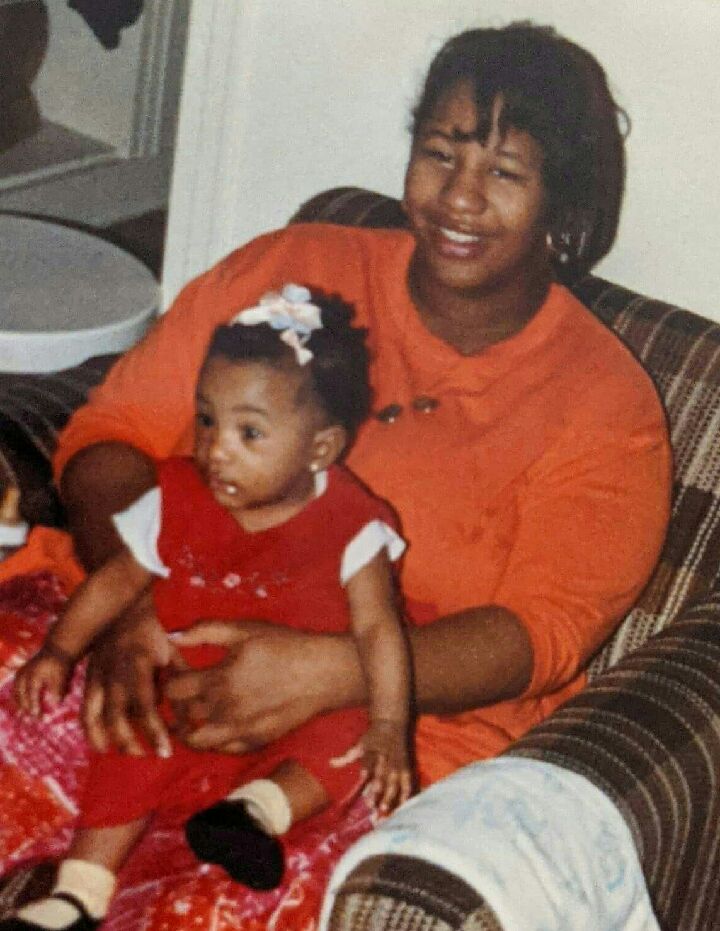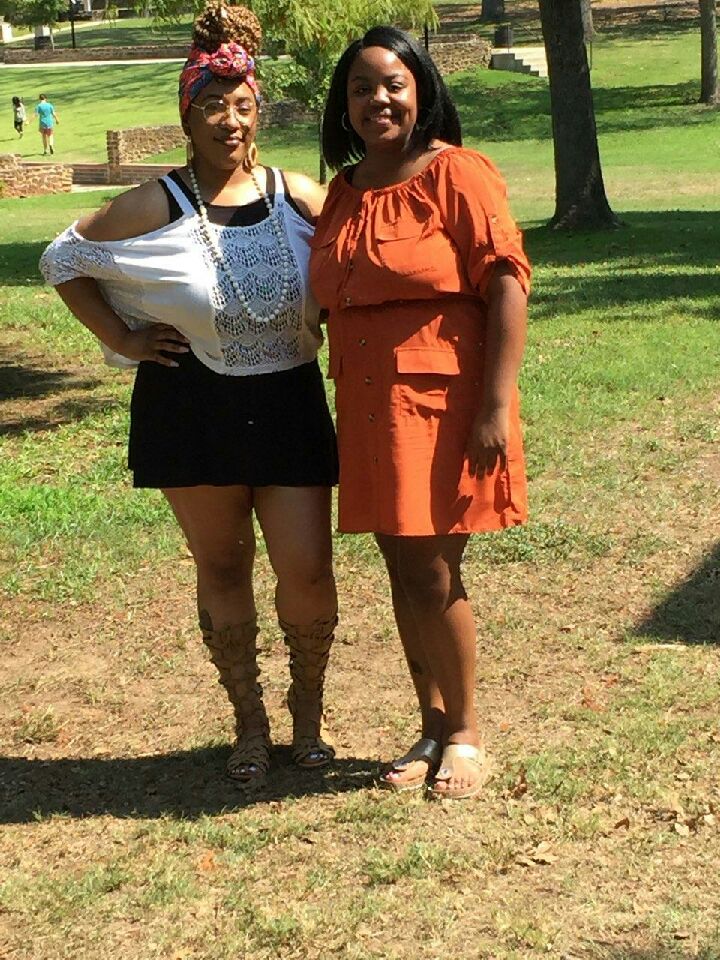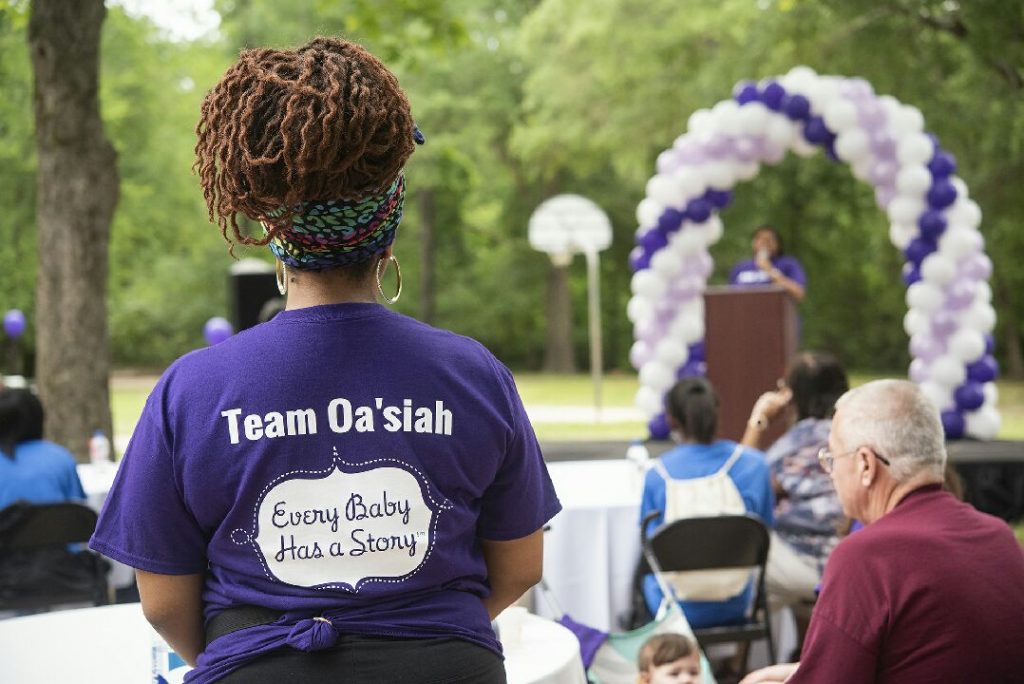How y’all doing tonight? Loss. When you think about loss, what comes to your mind? Losing a friend because of an argument, a favorite game you’re playing, or maybe a set of car keys. My name is La’Tashiana Washington, and I was 23 years old when I experienced my first major loss.
She was a woman who believed in me. I remember she believed in my dreams, my goals, my reality. She was the only one who knew the real me, the quiet me and the over the top me. The ambitious, determined me. This woman, she was and is my mother.

Right after my 14th birthday, the summer before my freshman year, my two brothers, grandparents and myself were at East Texas Medical Center in my mom’s room. She had been admitted three days before for high blood pressure. She passed out at work. We all were sitting around her bed talking and laughing, surrounded by flowers and cards. I remember standing by the window when the doctor walked in. He told her that her kidneys were shutting down. That they were functioning at zero percent. As he continued to explain kidney disease, I could feel myself going deaf. I could see his mouth moving, but I couldn’t hear anything. Watching the tears fall down my mom’s face meant this was bad. I ran out of the room.

She held on for eight years. Then she found herself back in another hospital room at East Texas Medical Center, this time telling her doctor, “I’m going to heaven.” Two days later in hospice, she passed away peacefully. My best friend, Deborah, was there for me. She didn’t say much. There wasn’t much she could say — she had her mom. But she let me know that she was going to be there for me no matter what.
Almost two years later at the age of 25, I was on the verge of having a family of my own. I remember clutching my tummy, and I prayed to God that he would bless my baby boy that was growing inside of me to be healthy. There was a day during my pregnancy that I knew something was wrong. I was around 23 weeks. I was in so much pain, I was hurting so bad and I was lightheaded. By the time I made it to the hospital, my legs were so swollen that I couldn’t walk. When I saw a doctor, she told me that I was suffering from a condition called preeclampsia. There was no cure. I didn’t have any time to wait. She said I was on the verge of having a stroke. The only option to try to save my son and myself was to have an emergency C-section. On March the 10th, 2017, my beautiful baby boy who I named Oa’siah, was brought into this world, weighing one pound and eight ounces. Two days later, God called my baby boy home.

During that time period, I had three people to help me get through that first week of losing Oa’siah. Again my best friend Deborah was there for me. She was preparing to go on vacation to San Angelo. She left work and came straight to me and stayed overnight. She was by my side the whole time, praying. The father of my son was there, and an awesome mentor of mine named Ellen from a great program here in East Texas for first-time moms called Embrace Grace, was there as well.

You know, I can still remember Oa’siah’s last moments as though it was yesterday. He breathed on his own for a short period of time, dying in my arms while I whispered a song in his ear. After I lost Oa’siah, my eyes became opened to healthcare for women in East Texas. I learned that preeclampsia is a dangerous disorder and that African American women are the most at risk in the state of Texas. Smith County has the second highest rate of infant mortality, and for African American women, those rates are almost doubled. I also learned that my mom was one of thousands of women at increased risk for kidney disease and diabetes. Death by kidney disease is high in Northeast Texas, and for African Americans, those rates are even higher. There’s research that social and economic stressors on Black women are associated with their chronic illnesses. This is something that needs to change in East Texas.
After losing my mom and my son, there was yet another loss in my life. The father of my son walked out on my life because he thought he was unworthy. Three weeks after our son passed, he left. He sent me a text message. He said he couldn’t be with me anymore, that he couldn’t face me. “I stress you out enough. And maybe if you wasn’t so stressed, Oa’siah would still be here.”
An entire year passed when I received the phone call that he was sick in the hospital, battling with spinal bacterial meningitis. I found myself back in another hospital room at East Texas Medical Center. I can remember in great detail as I was standing over him while he was hooked up to all of these tubes. I asked his doctor, “If I spoke to him, could he hear me?” She said yes and stepped out to leave us alone. Thinking about the nickname he used to call me, I began to speak.
“Your Honey Tea is here. I just want to say that I forgive you for leaving me and that it’s not your fault Oa’siah passed away, and that you can let go.” As I was looking at his face, I began to see tears fall down both of his cheeks. The next day, I received a phone call that he passed away. I prayed to God that he would allow him to rest in peace.

Once again, my best friend Deborah was there for me for yet another tragedy in my life — even when I didn’t want her to be, even when I wanted to withdraw. You see, I had experienced so many losses in my life, I wanted to withdraw. What if I ended up losing Deborah, too?

My mother and my son, they are my flesh and blood. That will never change. But over time, I learned that you don’t have to share the same DNA to be family. My best friend Deborah, my mentor Ellen — these women, they became my family.
Loss. When you think about loss, what comes to your mind? Life is a journey that we’re all on. And I know that one day my journey will come to an end. My triumphs and my tribulations are indeed my reality, but it is because of this journey called life and my father up in heaven that I’m able to stand here today and smile. Thank you.
La’Tashiana Washington is a community health worker at Christus Mother Frances Hospital. She attended John Tyler High School, Tyler Junior College, and Texas A&M. Next year, she will be attending the University of Tyler at Texas majoring in Health Science. She volunteers with the Nurse Family Partnership, and joined the Preeclampsia Foundation to raise awareness of this condition. She loves to write poetry, read, and spend time with friends and loved ones.
Have a true personal story about life in Tyler and East Texas you’d like to share at the next Out of the Loop storytelling event? Email storytelling director Jane Neal and describe your story in a sentence or two.
Thanks for reading this story. Just one more thing. If you believe in the power of local journalism here in Tyler, I'm hoping that you'll help us take The Loop to the next level.
Our readers have told us what they want to better understand about this place we all call home, from Tyler's north-south divide to our city's changing demographics. Power, leadership, and who gets a seat at the table. How Tyler is growing and changing, and how we can all help it improve. Local arts, culture, entertainment, and food.
We can't do this alone. If you believe in a more informed, more connected, more engaged Tyler, help us tell the stories that need to be told in our community. Get free access to select Loop events, behind-the-scenes updates about the impact and goals of our work, and, above all, a chance to play a part in bringing more fresh, in-depth, unexpected journalism to Tyler.








